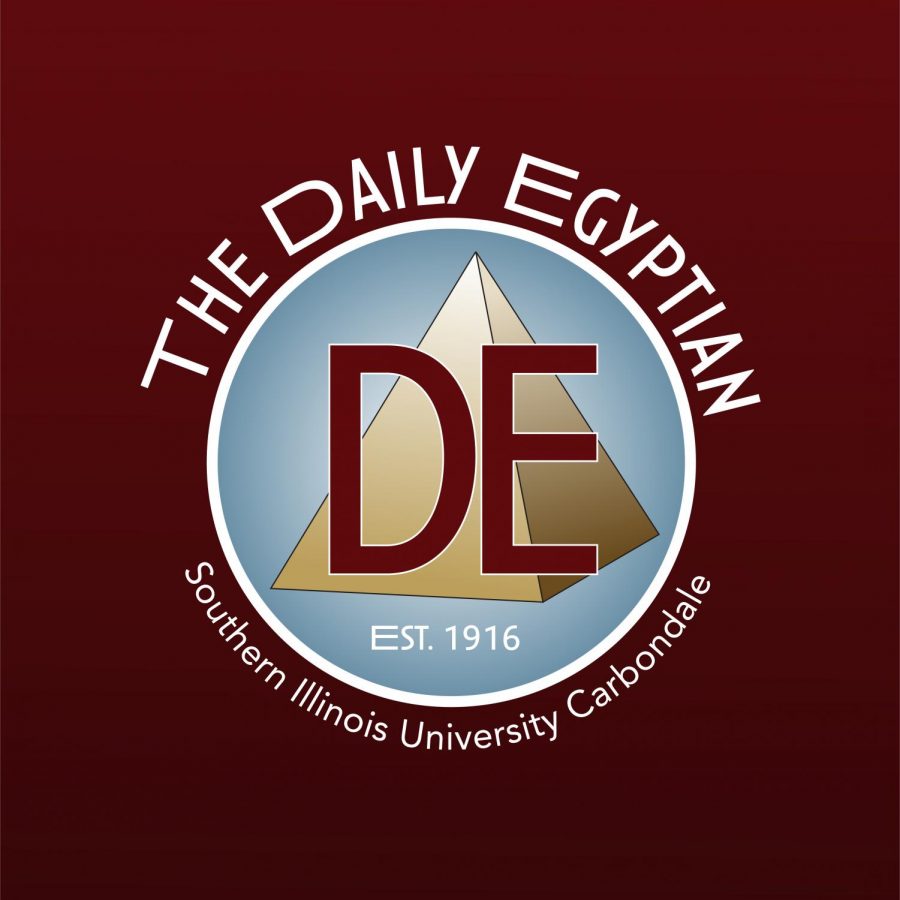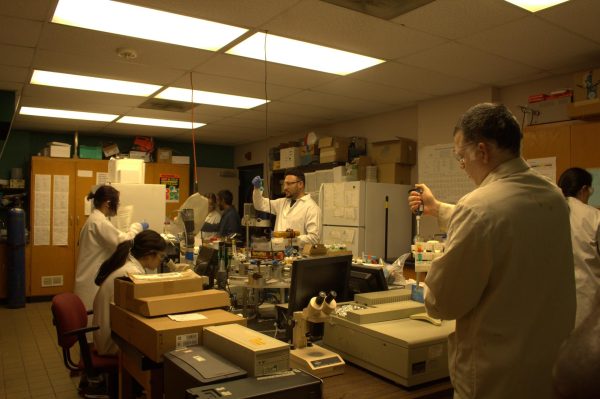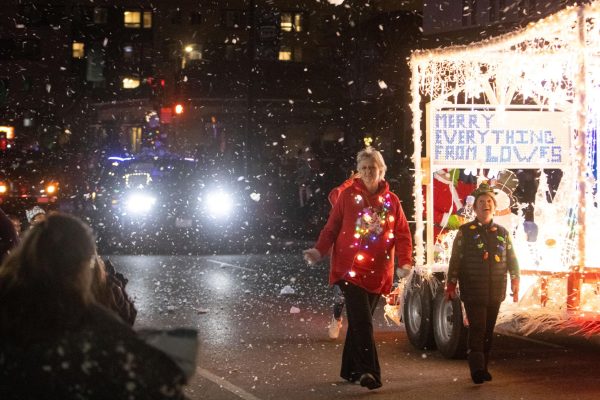Saluki Teen Science Cafe returns to encourage educational enjoyment
The Saluki Teen Science Cafe is returning to Southern Illinois University at Carbondale (SIU-C) on September 23 after a three month hiatus caused by a decline in attendance during the summer months.
The Cafe is a research project which records interactive, student-led STEM seminars and seeks to improve the confidence kids have in approaching science related topics and classroom performance.
Angela Box, professor of education at SIU-C and co-founder of the Saluki Science Cafe, attributes the drop in attendance to a lack of outreach options available as a result of COVID-19 restrictions. However, they continued to gain an audience virtually during online lectures with teachers encouraging their students to participate and urging students to join through word of mouth.
Advertisement
“Our goal is to figure out how we reach our teens, especially our rural teens, and engage them,” Box said. “Not just engage them, but get them to want to be a part of or interested in STEM.”
Greg Hollmann, a teacher at Rend Lake College who virtually presented at the cafe last September, said the project is intended to be an affordable way to engage in conversations about science and utilize community resources.
“The more our public knows about [the project], the more they will be willing to support these efforts and participate,” Hollmann said.
Marcy Hood, a graduate student at the SIU-C STEM Research Center, is in charge of organizing the Cafe and its various functions. Now that it is in-person, Hood’s primary objective is to boost attendance under proper masking and social distancing regulations.
Hood said much of the previous months’ low attendance is attributed to students being “burned out” after being exposed to multiple hours of educational screen time per day, decreasing desire to attend another, voluntary online educational opportunity.
“Last year, we didn’t have as many [students] as we would like due to some students not having internet at home or not getting the word out yet or just the burnout from being online school all day,” Hood said.
While the cafe has a strong local presence, it’s roots began internationally. Starting in the UK in the 1990’s, the US branch began in Los Alamos, New Mexico in 2007, and has since spread across the country with major centers in large cities such as St. Louis, New York, and San Diego.
Advertisement*
Before attending SIU-C as a graduate student, Hood was an elementary level science teacher. While attending, she plans to align her research with the cafe’s mission to create an interactive atmosphere that can be applied to the classroom.
“I just want to help teachers see the value in STEM in their classrooms and see why it’s so important, especially at the elementary level,” Hood said.
Hood also plans to recruit presenters that can appeal to the interests of the current students.
“The purpose is to get kids involved in loving science and STEM,” Hood said. “It’s also to have them learn about something they wouldn’t learn about in school, because they can have such a variety of information at the TSC.”
With its return, previous presenters are expected to return by popular demand, including professor Hollmann. His September presentation on astronomy was particularly well received by the students and faculty in attendance.
“A lot of times astronomy is something that folks have an interest and a curiosity in.” Hollmann said. “ It’s an easy topic to attract some participants and also give them some information they can use on their own.”
Hollman said he believes giving students a good understanding of where scientific knowledge comes from will allow them better sift through misinformation on the internet. He believes that interactive learning and appealing to the interests of the students allows them to better grasp the knowledge presented to them and fosters a desire to learn.
“I think a healthy Teen Science Cafe has a lot of the teens driving the topics and driving the conversations.” Hollmann said.
Interactivity is a common thread among TSC’s across the country, and is one of the main tools the national program uses to attract high school and college students across the country, according to the TSC website.
“One thing that was emphasized to me as a presenter was that this is not just free reign for me to share the knowledge and information that I have,” Hollmann said. “I need to find some way to interact and make this a lively discussion.”
Hollmann said he believes the TSC is a valuable resource for students seeking to further their STEM education.
Box said she uses this interaction as the primary method of engagement with those who attend.
“Overall, our interest is in reaching especially those kids who are not necessarily motivated,” Box said. “What we wanted to know was, if students are engaged consistently, will their self-efficacy increase?”
Box said that ensuring rural students understand they can learn practical knowledge and also get them potentially interested in STEM education is one of the major objectives of the research project.
“You know, the teen science cafe, we want to do outreach and service.” Box said. “One of the ways that we have discussed doing that is by not just setting up the one, what we would consider a centralized place, because in a rural area it isn’t really centralized.”
The organizers of the Saluki TSC plan to broaden the reach of the program to further, more isolated, communities and underprivileged areas of southern Illinois by setting up additional locations throughout the area making it easier for students that would otherwise be unable to attend due to transportation restrictions.
“We want to reach teens using teens, and engage them,” Box said. “And that they are interacting with professional STEM professionals who are willing to actively engage with them.”
Staff reporter William Box can be reached at [email protected] or on Twitter at @William17455137. To stay up to date with all your southern Illinois news, follow the Daily Egyptian on Facebook and Twitter.
Advertisement












